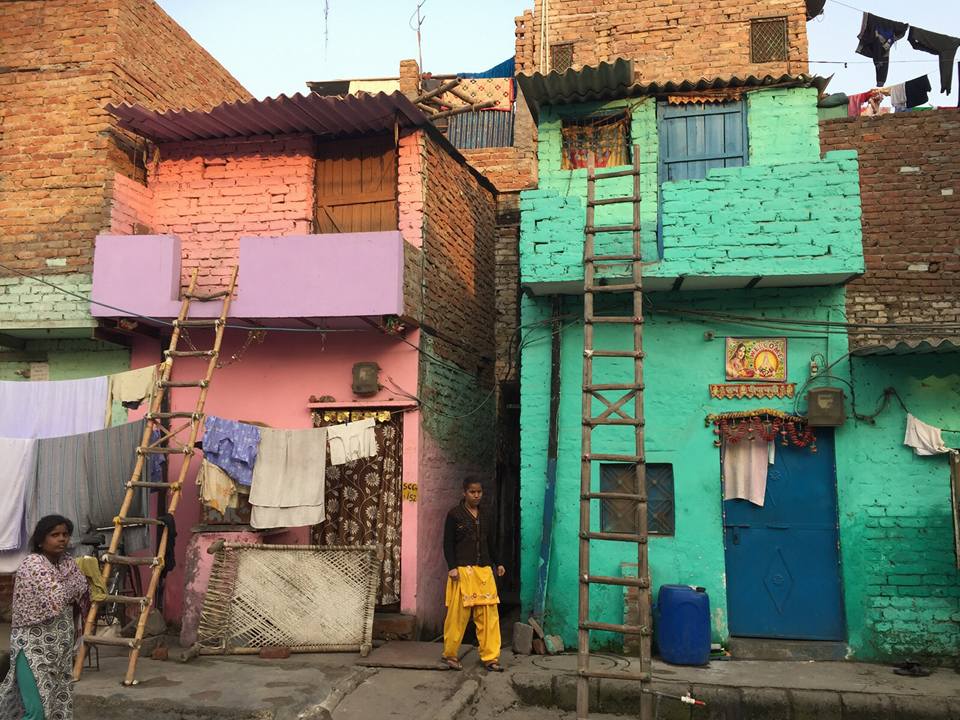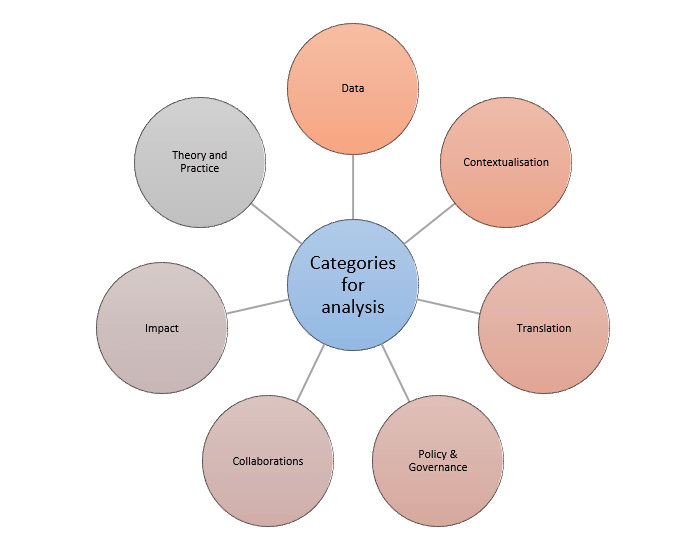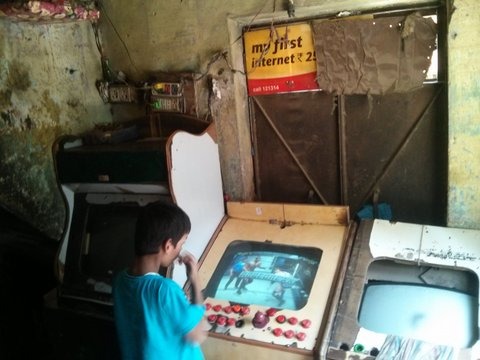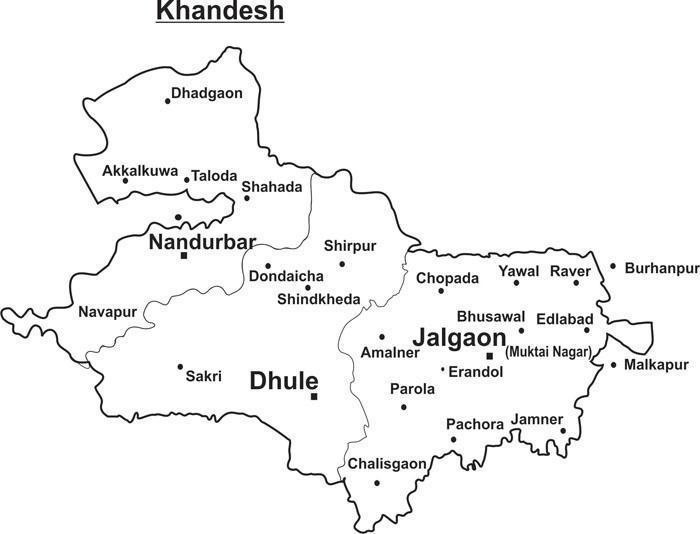Tag: Infrastructure
-
Call for Abstracts – Lives of Data v2.0: Computing, Money, Media Workshop
We are excited to announce the ‘Lives of Data v2.0: Computing, Money, Media’ Workshop, on 05-06 January 2018. Call for Abstracts The first ‘Lives of Data’ Workshop, in January 2017, initiated engaging, cross-disciplinary conversations on the historical, cultural, political, and technological conditions of data-driven knowledge production and circulation in India and South Asia. The workshop…
-
Lives of Data Workshop – Report & Recordings
The ‘Lives of Data’ workshop, 05-07 January 2017, brought together a diverse group of interdisciplinary researchers and practitioners to reflect upon the historical and emergent conditions of data-driven knowledge production in India and South Asia. The workshop initiated wide-ranging conversations on history of statistics, media and computational cultures, politics and practices of data-driven governance, and…
-
Lives of Data Workshop – January 5-7, 2017
The Sarai Programme, CSDS is organising the Lives of Data Workshop on 5th to 7th January, 2017. The workshop examines the historical and emergent conditions of data-driven knowledge production and circulation in India and South Asia. In the context of the Data Revolution, the workshop links emerging research on the history of statistics, new/old technological…
-
Social Media Research Workshop, August 12, 2016
As part of the third and final cycle of Sarai’s Social Media Research Fellowship, since March this year, short-term research fellows have been studying different aspects of digital and social media. On Friday, 12 August, 2016 we are organising a workshop for the fellows to present and discuss their research with a select group of…
-
Daily Mobile Recharges to Water Tankers: Deconstructing the Infrastructure of Insecurity
Packets of Diamond chips strung from store fronts are a common sight in Delhi’s peri-urban areas like Savda Ghevda or its dense informal settlements, but not in its formal colonies where larger brands such as Lays chips are found instead. The ‘pocket internet’ that thrives on small data recharge amounts for mobile phones that my previous posts have covered is marketed similar to the ‘sachet marketing’ of Diamond chips. Moreover, economic trends indicate that at least in rural India, these small but regular amounts being spent on internet have even begun to eat into the profits of consumer items such as chips and cold drinks…
-
Mapping Sharing Networks and Cyber Corners in Informal Settlements
I missed it the first time I passed by it. As if by Rowling magic, the game parlor appeared before me the second time I looked for it because this time I knew where to look, thanks to the two boys who enthusiastically kept pointing at it from their end of the street. One moment I am in the narrow, sunny lane of the Bhoomiheen camp in Govindpuri and the other, in a dark and dingy room filled with young boys exchanging expletives who are as surprised to find me in the midst of them as I am at first. After convincing them I am not lost, I am able to strike up a conversation with them on their favorite games…
-
Unbundling the Bundle: Distribution of Televisual Content via Broadband Services
In a stylistically treated advertisement of the Indian Premiere League (IPL) 2016, a group of youngsters in various environments like that of an office, college and home are hooked to their smartphones for latest cricket updates. The advertisement ends with the tagline “screen chhota hai toh kya hua, dil bada hai yaar” (what if the screen is small, we have a big heart). Furthermore, the tagline of IPL 2016 on hotstar is “jab jab cricket, tab tab hotstar” (Think cricket, Think hotstar). This commercial, that attempts to dismantle the television-cricket relationship and draws an association between cricket and hotstar…
-
Data, Contextualisation, and Simulation Design: Findings from Pilot Interviews
After completing my undergraduate degree in Computer Science and Engineering, I joined a research organisation which looked at infrastructure and policy studies, using gaming and simulation methods. A year and a half later, I was one of the co-founders of Fields of View, a research group using gaming, modelling and simulation methods to study cities. Over the course of the last few years, working on projects where computer simulations have played a crucial part got me interested in understanding where these technologies come from, who uses them, and how…
-
Data, Downloads and Gaming Dens: Digital Networks in Informal Settlements
My research over the last few weeks has dealt with exploring the networks of digital consumption in two of Delhi’s informal settlements – Govindpuri and Sundernagri. Both are JJ clusters[1] or squatter settlements[2] that sprang up in the 1970s, along what were then the fringes of the city, around the time of the Emergency[3] when mass slum clearing operations were undertaken. Personal accounts in my interviews have revealed how the lives of many of the residents there were directly affected by two major projects undertaken by Sanjay Gandhi [4]. The first was the ‘city beautification’ program that led to the eviction of thousands of families in JJ clusters and the second was the ‘population control’ program implemented through mass sterilizations, which were forced in many cases…
-
‘Culture of Downloading’ in Khandesh region and the Story of Transfer of Media – An Auto-Ethnographic Study
In this auto-ethnographic study, I am a data source, along with other ‘downloading workers’. I have already contacted a few of them. I will be looking at five places: Khandesh-Shirpur which is a tehsil in Dhule district, Dhule, the headquarter, Boradi – a village, Jalgaon town Jalgaon district, and Malegaon in Nashik district. Of these, Malegaon came into focus for various reasons including Malegaon Ka Chintu[6] (2010) a Television serial and Supermen of Malegaon[7] (2009), a documentary. I have selected these places because of the diversity they present vis-a-vis the ‘downloading culture’. All these places have a variety of communities, religions, castes and creed that have their own choices for ‘downloading or transferring the media’…







